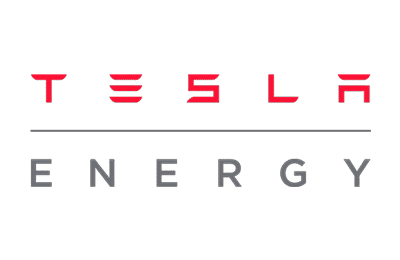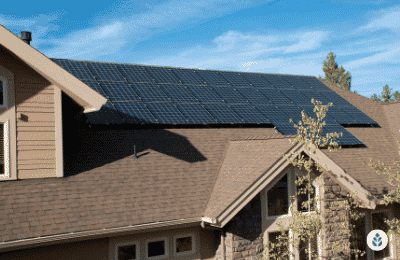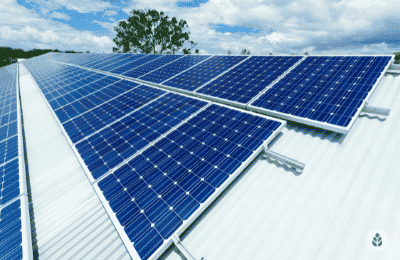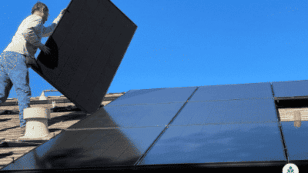 Reviews
Reviews
Top 7 Best Solar Companies in Maine (2024 Reviews)
In this guide to Maine’s best solar companies, you’ll learn
- What are the best solar providers in ME?
- How do solar panels affect your home value in ME?
- What should Mainers look for in a solar provider?
Each product and or company featured here has been independently selected by the writer. You can learn more about our review methodology here. If you make a purchase using the links included, we may earn commission.
Maine is an outstanding place to convert to solar energy. Despite the heavy snowfall and the below-average sunlight availability that can reduce production, the average system in the state pays for itself in just 8 years and then saves an additional $48,247 over the remaining panel lifespan. Plus, the state has rather good solar incentives to sweeten the pot even more.
While the decision to go solar in the state is usually an easy one, choosing from the 30+ installers in the state is much more difficult and requires a lot of research. Luckily, we’ve done that research for you. In this article, we’ll review what we believe are the best solar companies in Maine and why we recommend each one so highly.
What Are the Best Solar Companies in Maine?
We’ve spent hours sorting through the providers in Maine to make sure we only recommend companies that we would use ourselves. The following are the companies we believe are the best solar installers in Maine overall:
- SunPower: Best National Provider
- Tesla: Best Technology
- Invaleon Solar: Best Regional Provider
- Summit Energy: Best Warranty Coverage
- ReVision Energy: Best Social Impact
- Maine Solar Solutions: Best Local Installer
- Sundog Solar: Most Local Experience
Compare Maine’s Top-Rated Solar Providers
Overall, we recommend getting a solar energy system installed in Maine via SunPower or Tesla, but we feel comfortable recommending any of the providers on this list. The table below provides some information on how these companies stack up against one another to help you decide which options might suit you.
| Solar Providers | Superlative | Our Score | Avg Cost ($–$$$$$) | Warranty | Financing Options | Get Quote |
| SunPower | Best National Provider | 5/5 | $$$$ | Minimum of 25 years for equipment, workmanship and production | Cash, solar loan, solar lease, PPA | Get Quote |
| Tesla | Best Technology | 4.5/5 | $$ | 25 years for equipment and performance; 10 years for workmanship | Cash, solar loan, solar lease, PPA | Get Quote |
| Invaleon Solar | Best Regional Provider | 4/5 | $$$ | 25 years for equipment, workmanship and production | Cash, solar loan | Get Quote |
| Summit Energy | Best Warranty Coverage | 4.5/5 | $$$ | 25 years for equipment and performance; 30 years for workmanship | Cash, solar loan, solar lease, PPA | Get Quote |
| ReVision Energy | Best Social Impact | 4.5/5 | $$$ | 25 years for equipment, workmanship and production | Cash, solar loan | Get Quote |
| Maine Solar Solutions | Best Local Installer | 4.5/5 | $$ | 25 years for equipment and performance; 10 years for workmanship | Cash, solar loan | Get Quote |
| Sundog Solar | Most Local Experience | 4/5 | $$$ | 25 years for equipment and performance; 5 years for workmanship | Cash, solar loan | Get Quote |

SunPower
Pros
- Most efficient panels on the market
- National coverage
- Cradle to Cradle sustainability certification
- Great warranty coverage
Cons
- Expensive
- Customer service varies by local dealer

Tesla Energy
Pros
- Price-match guarantee
- Sleek, efficient and durable solar panels
- Best solar battery on the market
Cons
- Some reported issues with customer service
- Customer service varies by local dealer
Tesla manufactures and installs some of the most impressive equipment on the market, especially when it comes to solar batteries.
Tesla outsources all installations to third parties, so it isn’t able to guarantee outstanding customer service. Still, most customers are pleased with the service they receive from this tech giant.
Why We Chose Tesla as the Company With the Best Technology
Tesla uses QCells panels in its installations, but its other technology is outstanding and widely considered the best in the industry.
The quintessential example of this is the Tesla Powerwall, Tesla’s solar battery. It’s not only one of the most capable batteries for power output and storage on the market, but it also features some advanced technology and AI-trained features, like StormWatch.
The battery stays connected to the internet to monitor your area for storms that could knock out your power — a common occurrence in Maine, one of the most likely states to see outages. It automatically stores power and reallocates your energy split to prepare for the blackout, providing ultimate convenience without any input from you.
Tesla’s EV chargers are also quite popular and can be adapted to fit non-Tesla EVs as well, making them a popular option for fast charging.
What We Don’t Like
The biggest downside to Tesla is the potential for below-average customer service. Tesla doesn’t have an in-house installation team and instead uses local third-party companies to handle the installation. You still get a workmanship warranty, but your overall experience with going solar could be less than ideal, depending on the installer assigned to your solar project.
Tesla’s workmanship warranty also only lasts for ten years. This is in line with the industry average, but we’d really like to see a longer coverage period in an area like Maine, where heavy snowfall and moisture could pose an increased risk for rooftop photovoltaic (PV) systems.
Read our full review of Tesla for more information.
Solar Products
Tesla used to manufacture its own panels but now exclusively installs QCells panels. These are an outstanding option, as they blend above-average efficiency ratings and high durability with pricing that’s lower than you’d see from many direct competitors.
One of QCells panel models has a snow rating that is about 1.5x the industry average, which makes them an outstanding choice for Mainers, who see snowfall each year in great excess of what most other states see.
In addition to QCells panels, you can get the following products and services from Tesla:
- Tesla solar roof
- Tesla Powerwalls
- Tesla EV chargers
- The Tesla solar monitoring app
Financing Options
Much like SunPower, Tesla keeps its systems and services widely accessible by allowing customers to choose from four financing options: cash, loan, lease or PPA.
A system purchased with cash is going to pay for itself the fastest and provide the highest savings thereafter, so it’s the most beneficial option overall. A loan is more accessible since you don’t have to pay everything upfront, but the interest will reduce your savings a little.
Leases and PPAs save less over time and don’t let you take the federal solar credit, but they are the most accessible options.
Warranty Information
When you go solar with Tesla, you get a 25-year warranty for the equipment and the production. The equipment coverage is average, and the production warranty is about five years longer than average.
You also get a workmanship warranty for ten years, which is average. We’d love to see a longer workmanship warranty in a higher-risk area like Maine, but this coverage is still quite good.
Facts and Figures: Tesla Energy
| EcoWatch Rating |
|---|
| Better Business Bureau (BBB) Rating |
| Average Cost ($-$$$$$) |
| Solar Services |
| 4.5 |
| C |
| $$ |
| Solar Panels, Solar Batteries, EV Chargers, Solar Roof Shingles, System Monitoring |

Invaleon Solar
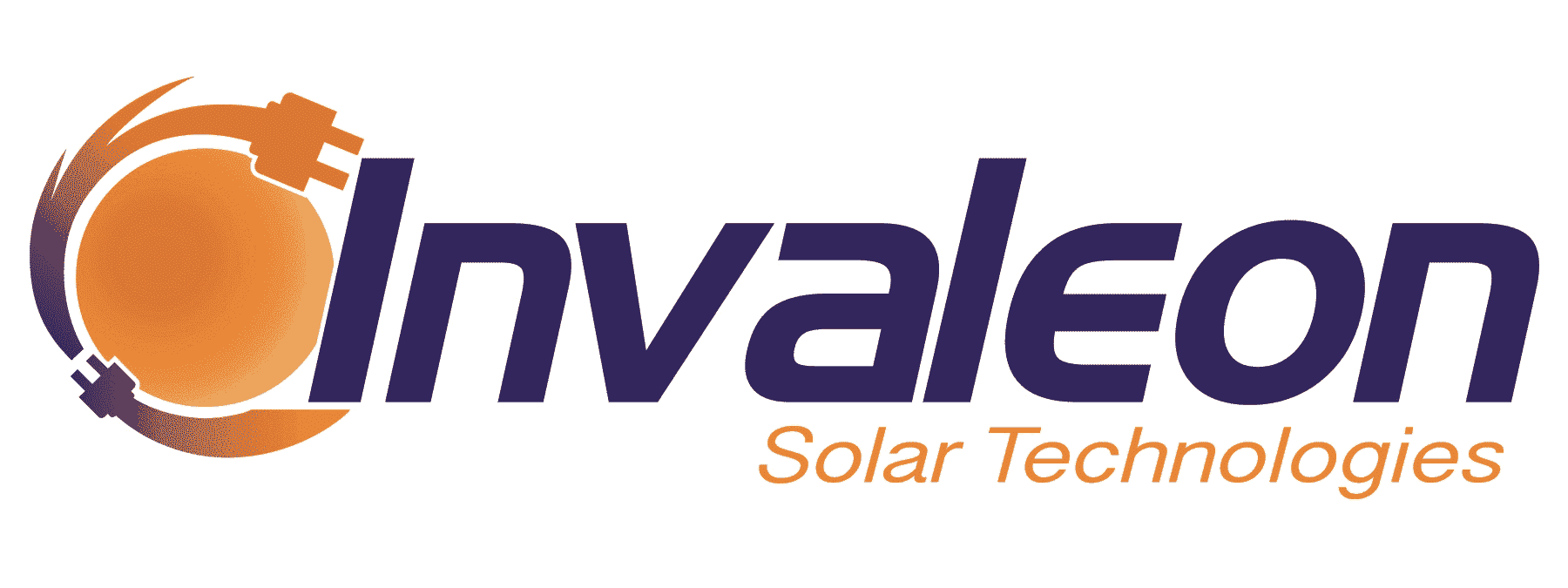
Regional Service
Average cost
Pros
- Great warranty coverage
- Many years of experience
- Representatives are experts on local policies
Cons
- Slightly limited service offerings
- Limited information available on website
Invaleon Solar is a regional company that delivers excellent customer service, local experience and expertise at every step of the way.
The company doesn’t offer a wide range of services, but for those homeowners looking for simple systems, it’s an outstanding option, in our opinion.
Why We Chose Invaleon Solar as the Best Regional Provider
Invaleon Solar has been serving Maine since 2011. It has nearly 15 years of experience, but more importantly, it was founded by master electricians with home improvement contractor certifications. The expertise you get from this company is incredible, and you can always rest assured that your solar panel system is being installed by true professionals.
In case the experience and certifications weren’t enough to convince you, Invaleon also backs all of its systems with a comprehensive 25-year warranty that covers equipment, workmanship and production.
Although this is a larger regional company, the technicians that service Maine have been doing so for many years and are experts on local regulations and incentives. Combined with great customer service, that means you’ll very likely get help navigating local solar incentives and rebate programs to help reduce your all-in installation cost — an important perk in Maine, where the per-watt price of PV equipment is well above average.
What We Don’t Like
There isn’t much we can say about Invaleon that isn’t positive. One minor downside is that it offers just the basic services, including panels, batteries and EV charger installations. For customers looking for more customization options, another company will suit them better.
Additionally, the company carries relatively few equipment brands. In the way of panels, it only carries REC and QCells. These are great options, but we prefer companies that have a wider range in terms of efficiency and cost per watt.
Solar Products
As mentioned above, Invaleon only installs panels from REC and QCells. However, these are tier-one panel brands that deliver above-average efficiency ratings and performance specifications, and they should provide the production capabilities Mainers need to offset their high energy costs.
If you’re looking for maximum production, we recommend the REC panels, which have a higher peak efficiency rating of 22.3%. QCells panels come in a bit lower, but they’re better suited for customers looking to minimize installation costs, as they have a lower cost per watt.
Invaleon also offers the following products and services:
- Tesla Powerwalls
- Tesla EV chargers
- Solar monitoring apps from Tesla and Enphase
- Commercial solar projects
Financing Options
Invaleon Solar only accepts cash purchases and solar loans, so your financing options are limited. We’d really love to see leases and PPAs offered; even though we don’t recommend them to most customers, they can help make renewable energy accessible to a wider customer base.
Of the options available, we strongly recommend a cash purchase if you can make it work. Paying in cash will provide greater benefits over time than a loan. Plus, a cash purchase is more accessible in Maine than in most other states since the average total system cost in the area is around $7,000 lower than the national average before the federal credit.
Warranty Information
Invaleon rivals some of the national companies when it comes to warranty coverage, which is pretty impressive. You get a 25-year warranty for the equipment, the production and the labor. This provides outstanding protection and peace of mind.
The equipment warranty is average, and the production warranty is a little longer than average. We feel the workmanship warranty is the most impressive, though, as it’s 2.5x longer than what most other companies offer for their labor.
Facts and Figures: Invaleon Solar
| EcoWatch Rating |
|---|
| Better Business Bureau (BBB) Rating |
| Average Cost ($-$$$$$) |
| Solar Services |
| 4 |
| A+ |
| $$$ |
| Solar Panels, Solar Batteries, EV Chargers |

Summit Energy
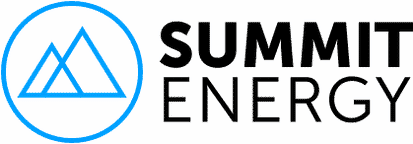
Regional Service
Average cost
Pros
- Great warranty coverage
- NABCEP-certified technicians
- Many financing options
Cons
- Relatively young company
Summit Energy is a solid regional installer with local experience, outstanding warranty coverage and a wealth of payment options to keep solar accessible.
Summit Energy was founded in 2016, making it a relatively young company, but we still feel it holds the expertise necessary for quality installations.
Why We Chose Summit Energy as the Company With the Best Warranty Coverage
Summit Energy’s warranty protection is outstanding and lengthier than you’ll find from most other companies. The coverage includes 25 years of protection for the equipment, a 25-year production guarantee and a 30-year workmanship warranty.
Very few companies provide anything more than a ten-year labor warranty, so having triple the warranty length is incredible. This is especially helpful in an area like Maine, where heavy snowfall can expose issues with the installation process more quickly and potentially lead to system or property damage.
In addition to stellar warranty coverage, Summit offers excellent customer service. It maintains an outstanding 4.33-star customer rating on the Better Business Bureau’s (BBB) website and an A+ rating overall. Most customers are pleased with the service, communication and attention they receive from this provider.
Additionally, Summit keeps its products and services widely accessible by accepting all four major solar payment options.
What We Don’t Like
There’s not much we have to say about Summit Energy that is negative. It offers a nice array of product brands and services, has great customer service and accepts a wealth of payment options.
We will say that the company was just founded in 2016, and we prefer to promote companies that have at least a decade of experience. We feel that ten years of service is long enough to establish longevity and reduce the risk of your installer going out of business and voiding your warranty coverage in the process. Still, the company’s technicians are highly qualified and individually experienced, so this is a minor drawback.
Solar Products
Summit Energy carries a wide range of panel brands, including REC, QCells, Solaria, Panasonic and SolarEdge. These are all great panel options for homeowners to consider, and they deliver excellent quality and durability overall.
If you want the best chance of eliminating your energy bills, we’d recommend the REC or Panasonic panels. These have the highest efficiency ratings of the lot. If you want to keep your upfront system costs as low as possible, we’d recommend the SolarEdge panels, which should have the lowest cost per watt.
Below are some other products and services Summit Energy offers to customers:
- Solar batteries — the company alludes to offering multiple brands, but only Tesla Powerwalls are specifically mentioned
- Roof replacement
- The Tesla and Enphase solar monitoring mobile apps
- Solar panel maintenance
Financing Options
Summit Energy accepts cash purchases, solar loans, solar leases and PPAs, so you have multiple options based on your budget. If you can make it work, we would strongly recommend moving forward with a cash purchase.
If cash is out of the question, a solar loan will be the next best option, followed by a lease and, finally, a PPA. We only recommend leases and PPAs if you absolutely can’t make a cash purchase make sense, and you won’t qualify for a loan. These options save far less money over time and don’t let you take the federal credit.
Warranty Information
Summit Energy provides outstanding warranty coverage, which includes 25 years of protection for your panels, a 25-year production guarantee and an incredible 30-year warranty for the workmanship.
The workmanship warranty is more or less unheard of in the solar industry, and it’s an excellent warranty to have in a place like Maine, where the weather can lead to issues with poor installations rather quickly.
Facts and Figures: Summit Energy
| EcoWatch Rating |
|---|
| Better Business Bureau (BBB) Rating |
| Average Cost ($-$$$$$) |
| Solar Services |
| 4.5 |
| A+ |
| $$$ |
| Solar Panels, Solar Batteries, Energy-Efficiency Upgrades, Community Solar |

ReVision Energy
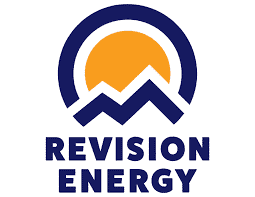
Regional Service
Average cost
Pros
- Comprehensive service offerings
- Certified B Corp
- Many years of experience
Cons
- Relatively short workmanship warranty
- No leases or PPAs
If you’re looking for a company that will provide you with a solid solar system but also has a positive impact on the community, we recommend ReVision.
This company has a relatively short workmanship warranty and limited payment options, but it can’t be beaten in terms of social impact.
Why We Chose ReVision Energy as the Company With the Best Social Impact
ReVision Energy is one of the few installers in Maine that is a certified B Corp. This certification confirms that the company goes above and beyond and puts its bottom line at risk to have a positive effect on the communities it serves. It also makes charitable donations, which is just icing on the cake.
ReVision doesn’t just deliver when it comes to the community, though. It also has over 20 years of experience and a positive track record for good customer service and quality installations.
The company installs a good selection of panel brands and couples those with a nice range of services, too. It’s clear that the company understands the big picture when it comes to clean energy and doesn’t just focus on installing as many panels as humanly possible on roofs to maximize profit. That means you get some system customization opportunities and a responsible and sustainable company overall.
What We Don’t Like
ReVision Energy is lacking when it comes to its labor warranty, which lasts for just five years. This is half the industry average and about a third of what we ideally like to see in higher-risk areas like Maine. We do believe the company’s decades of experience should help reduce the risk of issues popping up, but we’d still prefer a longer formal warranty.
Additionally, ReVision only accepts cash and solar loans as payment. These are the only options we typically suggest considering, but we’d still prefer to see the company making its services accessible by entertaining PPAs and leases as well.
Solar Products
As mentioned above, ReVision carries a nice range of panel brands, which include QCells, SolarEdge and SunPower.
SolarEdge are the most affordable solar panel of the three, so they’re ideal for keeping installation costs as low as possible. SunPower/Maxeon panels have the highest efficiency rating in the industry, so they will perform better and produce more power than any other option available from any provider. QCells panels deliver excellent durability as well and fall between the other two in terms of price per watt, making it a good intermediate option.
Below is a quick list of the add-on products and services you can get from ReVision:
- Solar batteries, including the Tesla Powerwall
- EV charging stations
- Solar heat pumps
- Solar water heaters
- Community solar
- Commercial solar projects
Financing Options
ReVision only accepts cash purchases and solar loans, so your payment options are limited. A cash purchase is going to be the better option in the long run, as it leads to the fastest payback period and the highest energy savings overall. However, it’s the less accessible option of the two.
A loan will still let you take the federal tax credit, which is a major plus, as it holds an average potential value of over $5,000 in Maine. However, the interest you’ll have to pay will reduce your solar savings and push back your break-even point.
Warranty Information
A system from ReVision Energy will come with 25 years of protection for the panels and a 25-year production guarantee. The equipment warranty is in line with the industry average, and the efficiency guarantee is five years longer than the average.
Unfortunately, ReVision only offers a five-year workmanship warranty. Something is better than nothing, but this is half the industry average. This is a pretty significant downside, in our opinion, especially in an area like Maine, where we’d prefer above-average workmanship warranties.
Facts and Figures: ReVision Energy
| EcoWatch Rating |
|---|
| Better Business Bureau (BBB) Rating |
| Average Cost ($-$$$$$) |
| Solar Services |
| 4.5 |
| A+ |
| $$$ |
| Solar Panels, Solar Batteries, EV Chargers, Community Solar, Solar Heat Pumps |

Maine Solar Solutions

Local Service
Average cost
Pros
- Comprehensive service offerings
- Outstanding customer service
- Locally owned and operated
Cons
- No leases or PPAs
Maine Solar Solutions is a smaller local company that delivers incredible customer service and individualized care, all at a below-average price.
We do wish the workmanship warranty was longer, and more payment options would be helpful, but we still feel it’s the best local installer in the state.
Why We Chose Maine Solar Solutions as the Best Local Installer
If you’re looking for the care and communication you’d expect from a small local company, we don’t think you can beat Maine Solar Solutions. This provider is small and specializes in solar installations, specifically in Maine. That not only means you get personal attention and constant communication throughout the installation process but also that you get hands-on help with navigating the solar incentive programs in the state.
In case you need proof of the outstanding customer service you’ll receive, just look at the Google reviews. Maine Solar Solutions maintains an A+ rating with the BBB and an unheard-of 5-star rating on Google Reviews. Every customer review raves about the company’s attention to detail and quality of service, which is exceedingly rare for a solar installer.
Despite the above-average service offered, this provider still manages to keep pricing below average. This is especially helpful in an area like Maine, where the typical price per watt is above average.
What We Don’t Like
There are two minor downsides to working with Maine Solar Solutions. The first is that the workmanship warranty only lasts for ten years. While this is decent and matches the industry average, we do prefer to see lengthier coverage in a higher-risk area like Maine.
Like many local installers, Maine Solar Solutions doesn’t accept leases or PPAs. This isn’t the end of the world because we don’t generally recommend these less-beneficial options anyway, but it does mean the company’s services are, overall, less accessible to customers.
Solar Products
Maine Solar Solutions installs an impressive array of panel brands, including Solar World, REC, Canadian Solar, Suniva, SolarEdge, Silfab, Solaria, QCells and Panasonic. This is more than most installers, and it speaks to the customization you can get from such a localized company that understands local energy needs.
We’d recommend the panels from Solar World or SolarEdge if you want to optimize for a low installation cost, but the panels from REC and Panasonic have the highest efficiency ratings and will maximize your solar energy production.
Below is a list of other products and services you can get access to through Maine Solar Solutions:
- Solar batteries, including the Tesla Powerwall
- EV chargers
- Off-grid solar
- Solar heat pumps
- Community solar
- Commercial solar projects
Financing Options
Maine Solar Solutions only allows customers to pay with cash or through a solar loan. These are the two options we recommend, and of the two, a cash purchase will serve you better over time. However, loans usually require no down payment, whereas cash demands that you pay the entire system cost — an average of almost $12,000 after the federal credit — upfront.
Leases and PPAs would be nice options for accessibility, so this is a minor downside to choosing Maine Solar Solutions.
Warranty Information
Maine Solar Solutions installs products that come with a 25-year manufacturer’s warranty for the panels and the panel efficiency. The equipment warranty is standard, but the production guarantee is a little longer than average.
The company also guarantees its workmanship for ten years, which is in line with the industry standard. We do, however, prefer longer coverage for labor in Maine, as the heavy snowfall can put rooftop panels at risk if they are installed improperly.
Facts and Figures: Maine Solar Solutions
| EcoWatch Rating |
|---|
| Better Business Bureau (BBB) Rating |
| Average Cost ($-$$$$$) |
| Solar Services |
| 4.5 |
| A+ |
| $$ |
| Solar Panels, Solar Batteries, EV Chargers, Community Solar, Solar Heat Pumps |
Sundog Solar
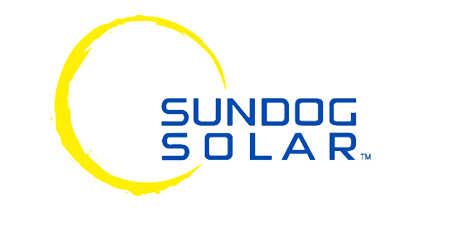
Average cost
Pros
- Outstanding customer service
- Many years of experience
- NABCEP-certified installers
Cons
- Limited financing options
- Only a 5-year labor warranty
Another great local solar installer is Sundog Solar, which has many years of experience and numerous certifications that make it stand out as reliable.
The company has a less-than-ideal workmanship warranty and limited payment options, but we still think it’s a wonderful option to consider.
Why We Chose Sundog Solar as the Company With the Most Local Experience
Sundog Solar was founded in 2009, which means it has nearly 15 years of experience. Plus, it has exclusively worked in Maine, so it’s familiar with local energy demands and can help you navigate and file for local incentives and rebate programs. Ultimately, this means you’ll get a system specifically tailored to your home and location, plus a good chance of minimizing your effective installation costs.
The company also holds some impressive certifications, including BBB certification and multiple technicians that are certified by the North American Board of Certified Energy Practitioners (NABCEP). This helps guarantee that your system is installed by true professionals. The company is also associated with Efficiency Maine Qualified Partners, which further proves its ability to help you take as many local incentives as possible.
Sundog Solar delivers high-quality customer care, as well, and it maintains a 5-star rating with the BBB and a 4.5-star rating on Google Reviews.
What We Don’t Like
One downside to working with Sundog is that the workmanship warranty only lasts for five years. This is half of what most other companies offer and far less than we’d like to see in a snowy state like Maine. We do think the company’s experience and expertise should limit the risk of issues, but we’d still prefer a longer warranty term.
Sundog Solar also only accepts cash purchases and solar loans, so its services aren’t going to be as accessible as those from most other companies. There’s a higher chance that you won’t be able to make Sundog Solar work as your installer, given the lack of payment options.
Solar Products
Sundog installs a handful of tier-one monocrystalline panel brands, including Solaria, SolarEdge, Canadian Solar, Solar World and QCells. These are all excellent brands that deliver durability and high performance.
Of these options, we think the QCells panels are the best suited for Mainers. They have a lower cost per watt than comparable panels, but they still have an efficiency rating of 21.4%, which is well above average. The SolarEdge and Solar World panels, however, can help you keep your solar conversion costs down.
Below, we’ll list some other products and services you can choose when you have Sundog Solar tackle your solar project:
- A variety of solar batteries, including the Tesla Powerwall and LG Chem batteries
- Off-grid solar
- Solar heat pumps
- EV chargers
- Commercial solar applications
- The Tesla and Enphase solar monitoring apps
Financing Options
Sundog Solar accepts cash purchases and solar loans for its products and services. Of these options, a cash purchase is going to lead to a solar payback period that’s about four years shorter and solar savings that are around $5,000 higher. If you can afford to pay cash, we strongly recommend it.
A loan is also a great option, as it’s more accessible with minimal or no down payment requirements. Loans also let you take the federal tax credit, unlike leases and PPAs. We would still like to see these other low-cost options accepted, though.
Warranty Information
The systems you get from Sundog Solar include a 25-year warranty for the equipment and the solar production. The efficiency warranty is a little longer than you’d expect from most installers.
Unfortunately, the company only offers a five-year labor warranty, which is half as long as most other top-tier installers provide. We’d ideally like to see at least 15 years in Maine, so five is a bit of a disappointment. Still, we think the company’s expertise speaks for itself and should limit the risk of system malfunction due to improper installation.
Facts and Figures: Sundog Solar
| EcoWatch Rating |
|---|
| Better Business Bureau (BBB) Rating |
| Year Founded |
| Service Area |
| Average Cost ($-$$$$$) |
| Solar Services |
| Brands of Solar Equipment Offered |
| Warranty Coverage |
| 4 |
| A+ |
| 2009 |
| Maine |
| $$$ |
| Solar panels, Solar battery and EV charger installations, Off-grid solar, Solar heat pumps, Commercial solar |
| Solaria, SolarEdge, Canadian Solar, Solar World, QCells |
| 25 years for equipment and efficiency, 5 years for workmanship |
Watch Below: How Well Will Your Solar Panels Still Work When Covered In Snow?
How to Save Money When Hiring a Solar Company in Maine
The average cost of a solar array in Maine is around $21,840 before the federal tax break or $15,288 after the credit. This assumes the average local cost per watt of $3.64 — which is well above the U.S. average of $3.33 — and the typical solar electric system size requirement in the area of 6 kilowatts (kW).
Although ME property owners spend less on photovoltaic (PV) equipment overall than residents in other states, the cost is still quite high, and most solar customers will look for ways to save money. Below, we’ll list some of these and go into further detail in the following sections.
- Take advantage of solar incentives and tax incentives
- Choose high-efficiency equipment
- Don’t undersize your system
- Avoid solar batteries
Take Full Advantage of Solar Tax Credits and Other Perks
The Pine Tree State is far from the best state for installing solar, primarily because Maine only has a handful of benefit programs available to solar customers. However, that’s all the more reason to take advantage of the incentives that are available to you in ME.
We’ll include a quick breakdown of the incentive programs available in Maine below.
| Incentive | Description |
| Federal Solar Investment Tax Credit (ITC) | This is a federal tax credit for 30% of your entire system value. That amount — an average of $6,552 in ME — gets credited to your income tax liability for the year your system is commissioned. You can roll over the credit for five years to take full advantage. |
| Net Metering | This is an outstanding policy that gives you credit for generating more electricity than you use with your panels. That excess energy gets “banked” with your utility company, and you can use it to offset future bills when production is outpaced by consumption. Ultimately, net energy metering (NEM) bumps up your long-term savings and helps speed up the panel payback period. The credit rate is below retail value in ME, but it’s still helpful to have at all. |
| Renewable Energy Investment Exemption | This is a property tax exemption that keeps the value added by your panels — around 4.1% of your home value — from bumping up your property taxes.4 Over the life of your system, this can save you hundreds or even thousands of dollars. |
Choose High-Efficiency Equipment
One of the most common reasons ME residents convert to solar energy is the high cost of energy in New England. ME property owners pay an average of over 27 cents per kilowatt-hour (kWh), which is well above the national average.5 With energy rates still on the rise, solar is becoming more and more valuable.
However, ME residents face some issues that make PV panels less efficient. First off, the northern location means a lower sun intensity, which leads to less solar production. Second, the above-average snowfall can cover panels for long stretches, rendering them useless.
Finally, the tree coverage in ME is greater than in any other state, which means shading is a concern for most residents.6
Your best option for ensuring you save the most on your utility bills is to choose a solar panel brand with a high efficiency rating. An option like Maxeon panels from SunPower is great and will let you take advantage of the available sunlight and offset electricity charges more than most other brands.
Size Your System Appropriately
ME residents pay an average of $3.64 per watt for their solar equipment, which is above the national average of $3.33 and the eighth highest in the nation. It might be tempting to install a smaller system to keep up-front costs down, but we’d advise against that.
The goal of your solar energy system should be to offset utility bills, so you’ll want to make sure your system is sized properly to make your Maine solar system worth it. The best way to determine what size your solar array should be is to have a reputable installer design a system for you.
The provider should consider tree coverage, your monthly energy needs, your home’s energy efficiency and more to balance up-front costs with long-term savings potential.
Avoid Solar Batteries
ME is a popular state for solar customers to couple their panels with solar batteries. The state is ranked 11th in the nation for the frequency of power outages, with some sources noting that most residents will experience around four blackouts every year.7
While installing solar batteries can help you maintain power through outages and provide peace of mind that you’ll always have electricity, they also add a lot of money to your system cost. Batteries can pay for themselves in states where net metering isn’t available, but Mainers won’t see a return on their batteries since net metering is offered at the full retail rate.
Unless you can’t afford to lose power during Maine’s sometimes intense weather, we recommend going with solar panels only and skipping the batteries.
Will Solar Increase Your Home Value in Maine?
Yes, installing solar panels will increase your home value in Maine by an average of 4.1%.8 With a typical property value of around $385,019, the average $21,000 system will add nearly $15,785 to your home value. This is an outstanding return on investment.
Additionally, property values in ME have increased by around 12% over the past year, and they’re expected to continue to go up in the future. Installing solar in The Pine Tree State is considered a solid financial investment, not only because it offsets your energy bills but also because it makes your home more valuable and desirable.
As is the case with most states, the larger cities in ME have seen a larger number of solar conversions than most other areas. Additionally, solar is more valuable in these areas because the property values tend to be higher. Below are the top cities where solar has had the most significant impact on home values and has been most popular.
- Portland
- South Portland
- Biddeford
- Augusta
- Rockland
- Lewiston
Should Maine Residents Hire a Professional Solar Installer or DIY?
If you’ve done any research on DIY solar panels, you’ve probably noticed that the average system cost if you install it yourself is significantly lower than the $12,000 average for a professional installation.
While it’s true that DIY installation is almost always cheaper, it’s not always worthwhile to attempt to install solar panels yourself. In Maine, specifically, there are a few reasons why you might want to opt to hire a professional. We’ll list these below and then explain them in greater detail in the following sections.
- High risk of roof leaks
- Panel efficiency is lower for DIY options
- You won’t get the same warranty coverage
- Permitting can be time consuming
DIY Panels Increase the Risk of Roof Leaks
One of the most common problems solar customers experience with PV panels is leaking from the roof penetrations. Homes in ME are at an elevated risk of leaking because of the above-average amount of rainfall.9 ME is also the second snowiest state in the nation, and snow sitting on your roof can promote leaking as well.10
Professional installers go to great lengths to prevent leaking, but despite their years of experience, it can still occur. DIY installation might be cheaper, but without the same experience, you’re at an even higher risk of roof leaks. You very well might spend more money fixing leaks or carrying out repairs if an improper installation leads to water damage.
DIY Panels Have a Lower Efficiency
As we mentioned above, a high panel efficiency rating is necessary in ME to take advantage of the sun and overcome deficits caused by the weather and tree coverage. The low sun intensity, abundant tree coverage and below-average sunny days per year can all contribute to lower levels of production, so high-efficiency panels are recommended.
Most DIY panels — including those from Renogy and Grape Solar — have lower efficiency ratings than professionally-installed panels like SunPower and Tesla. While the initial installation for a DIY solar project will almost always be lower, you may save less in energy with lower-efficiency DIY panels over time, making your initial savings moot.
Warranty Coverage on DIY Panels is Inferior
Solar in ME will usually cost you between $7,500 and $23,000, depending on whether you install panels yourself or hire a professional to do it. Either way, the cost is high, and you’ll want solar warranties to protect your investment.
A significant issue with installing your own panels is that DIY options usually come with minimal warranty coverage. Most have equipment and efficiency warranties that last between five and ten years, and none come with workmanship warranties.
When you choose a professional installer, you’ll more often get equipment and efficiency warranties that last around 25 years. Plus, you’re more likely to get workmanship warranties that cover issues with the installation. This is especially important in ME, where excessive snowfall and rain can quickly expose mistakes made during the installation process.
Permitting Can Be Time-Consuming
Finally, all municipalities in ME require permits to be filed for rooftop solar installations. The process requires that a certified electrician sign off on your system before the panels are considered legal. You’ll also need your electrician to connect you to the grid, unless you’re installing an off-grid solar panel system.
This is an expense that many DIYers fail to consider, and it can sometimes push your cost close to the average for a professional installation (after rebates and tax breaks). As such, you may not save as much as you think you will by completing a DIY installation.
What Should Mainers Look For in a Solar Installer?
There are a few things you should look for when choosing a solar installer in ME. To ensure you have the best experience possible and enjoy the most long-term savings, you’ll want to consider these factors:
- Panel brands offered
- Efficiency warranties provided
- Overall cost
- Years of local experience the company has
We’ll explain why each of these is important in ME below.
The Brands of Panels Offered
Every installer carries a set selection of panel brands, and the brands differ in several ways. One of the most crucial differences between panel brands is the efficiency rating. ME residents need to prioritize efficiency because several factors can cause production to dip, including:
- Shading from the high percentage of tree coverage
- Heavy snow coverage blocking sunlight during the winter months
- Above-average number of cloudy days in the state
- Low intensity of sunlight, particularly in the winter months
Ideally, you should choose an installer that carries high-efficiency panel brands like Maxeon to maximize your long-term solar energy savings.
The Efficiency Warranty Included With Your Panels
For similar reasons, you should look for a solar installer that offers a lengthy efficiency warranty. This type of warranty guarantees minimal degradation of your panel efficiency, which means greater levels of production over time. This is especially important, as electricity rates are high in ME and are only expected to rise in the future.
The Cost of the System
Solar systems in ME average around $22,000 before rebates and tax credits, which is prohibitively expensive for some. Even if you can afford to pay this price in cash, choosing a relatively affordable company is usually wise to help keep costs down.
It’s important to consider the quality of the equipment, warranties and labor when comparing prices, though. It might very well be worth it to pay a bit more for your system if you’re getting top-of-the-line solar panels, good customer service and lengthy, robust warranties.
The Years of Experience Installing Solar in ME
It’s usually better to choose a company with a longer history and more experience. This is especially important in ME because the recent surge in solar popularity has led to numerous fly-by-night solar panel companies popping up to take advantage of the demand.
Opting for an experienced company will usually mean better service and lower risk of your warranties being voided. It’s also a good idea to consider localized experience. Companies that have worked in ME for years should understand your specific needs — like high-efficiency panels, good warranty coverage and more.
Methodology: How We Reviewed the Best Solar Companies in Maine
In reviewing the best solar companies in Maine, we researched all of the 30+ providers that service the state and looked at six main criteria that we believe are most crucial for guaranteeing a positive customer experience and getting a reliable system. We’ll explain these factors below and include our rating system so you know how we weighted each criterion.
- Local reputation and reviews (20%): Since there are so many companies available in Maine vying for your business, we first look at the company’s reputation and how reliable past customers believe each provider is. We read through dozens of reviews to see where companies succeed and where they fail, and we consider the total number of positive reviews and also how severe the issues are in the negative ones.
- Pricing and financing (20%): The average cost per watt for PV equipment in Maine is around $3.64, which is significantly higher than the industry average of $3.33. To help ensure your solar project is affordable, we prioritize companies that maintain average or below-average pricing. We also prefer to promote installers that accept a variety of payment options, as that means greater accessibility for customers in different financial situations.
- Services offered (20%): Maine is a popular place for add-on services. Solar batteries help maintain power through the frequent blackouts, EV chargers are increasing in popularity as more and more homeowners turn to electric vehicles and the high cost of electricity in the state leads many residents to seek out other energy efficient home improvements. Since there’s a high demand for these other products and services, we prioritize companies that do more than just install solar panels.
- Warranty coverage (20%): Solar power systems are expensive, and most customers want to know that their systems are going to stay protected for years to come. That’s why we look for companies that include robust warranty coverage for their systems and labor. We specifically look for lengthy workmanship warranties, as Mainers see a lot of snow each year that can put improperly-installed rooftop panels at an increased risk of damage and leaking.
- Company experience (10%): As the demand for solar in Maine grows, we’re seeing more and more companies enter the solar space to take advantage and turn a profit. Unfortunately, that often translates to below-average customer service, and younger companies are more likely to go out of business and create issues with your warranty coverage. We try to stick to companies that have at least a decade of experience, and localized experience is preferred.
- Brand quality (10%): Finally, we consider the panel brands that each installer carries. Mainers have varied needs, so we like to promote companies that offer something for everyone. Specifically, we like to see multiple panel brands included that range from moderate to high efficiency and vary in cost per watt.
Read More About Going Solar in Maine
- Is Solar Worth It in Maine?
- Maine Solar Incentives Guide
- Find Cost Savings on Solar Panels in Maine
- What to Know Before Buying Solar Panels in Maine
The cost information presented in this article is derived from a comprehensive analysis, incorporating data from multiple industry sources. The average cost per watt per state was calculated based on figures from Consumer Affairs, Energy Sage, and Berkeley Lab’s Electricity Markets & Policy Department. Additionally, monthly energy consumption and the average monthly cost of electricity were sourced from the U.S. Energy Information Administration, ensuring a well-rounded and accurate representation of the information presented.
FAQ: Best Solar Companies in Maine
We get a lot of questions about the prospect of going solar in ME. Below, we’ll answer some of the questions we see most often from homeowners in your area.
Based on our data, ReVision is the best overall solar installer in Maine, but SunPower may claim the title of most reputable based on its industry experience and nationwide service. That said, each of the five solar installers on our top providers list has passed EcoWatch’s rigorous standards test, and we’re confident that these are the best, most reputable solar providers in Maine.
The brand of solar panel you install is always important in ME, as the efficiency rating can play a role in how much energy you offset and how much you save on electric bills.
However, in most cases, solar panel selection does not matter very much when it comes to choosing a solar installer in Maine. This is primarily because most of the solar providers we’ve listed above have a lot of overlap, offering brands like LG, Panasonic, REC and Qcells. If you’re looking for a specific brand, like Tesla, you’d be deciding between ReVision and Maine Solar Solutions, which both offer Tesla solar panels.
On the other hand, if you have a small roof and want to prioritize highly efficient solar panels, you may be apt to choose SunPower panels.
Bigger national providers are not always the best option in Maine. While larger companies can offer better technology, speed of service, and warranties, they’re lacking when it comes to intimate knowledge of local weather and policy and sometimes minimizing cost. In fact, a recent report by the National Renewable Energy Laboratory found that large solar installers are $2,000 to $5,000 more expensive than small solar providers.11
It’s hard to know which solar provider will be the most affordable in Maine because solar panel installation costs vary based on factors specific to your household. EcoWatch recommends getting a few free quotes from solar providers to compare and contrast total costs.
You should also compare the solar financing options we’ve cited for each company on our list to your own needs. For example, would it be better for you to pay for your solar installation in full or take out a loan? Would solar leasing be a good option? You’ll want to find the company that offers the best financing options for your needs.
Lastly, don’t forget to ask each installer what solar perks may be available to you. Any homeowner who installs solar panels in Maine is eligible for a federal tax credit, also called the solar investment tax credit (ITC). However, there may be other solar benefits for Maine residents.
While photovoltaic (PV) solar panels work best when they’re soaking up direct sunlight, they still work when in the presence of indirect sunlight on cloudy days. Additionally, some homeowners may think solar panels won’t work in the winter, but that’s not the case — electricity actually flows faster in colder temperatures, so your panels may work even better in the winter months.
Comparing authorized solar partners
-
- Most efficient panels on the market
- National coverage
- Cradle to Cradle sustainability certification
- Great warranty coverage
- Expensive
- Customer service varies by local dealer
A+Best National Provider1985SunPower Panels25-year all-inclusive warranty
Having trouble deciding? Click below and use our process to receive multiple quotes instead:

 233k
233k  41k
41k  Subscribe
Subscribe 

